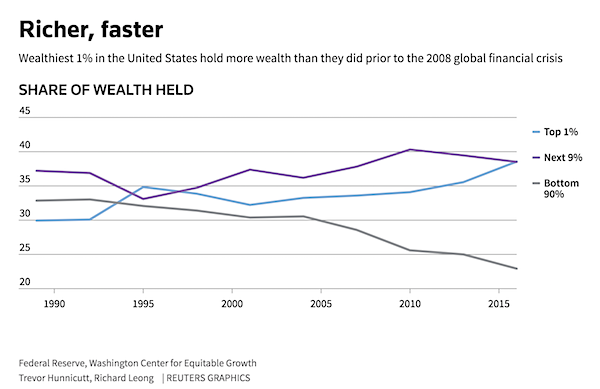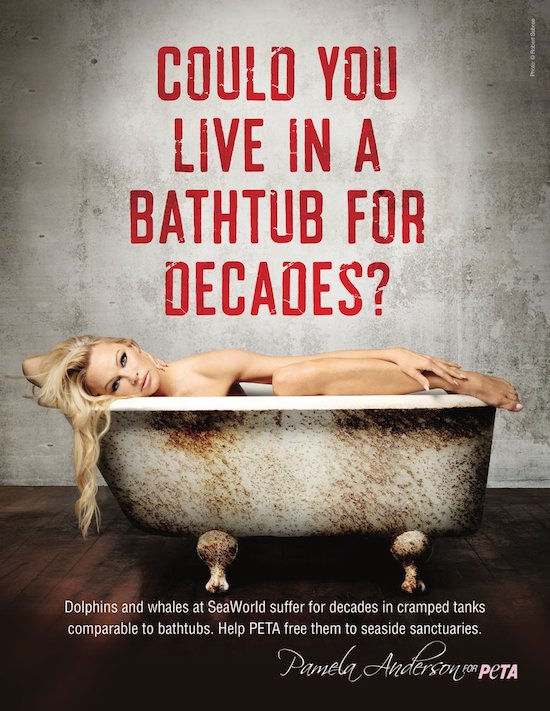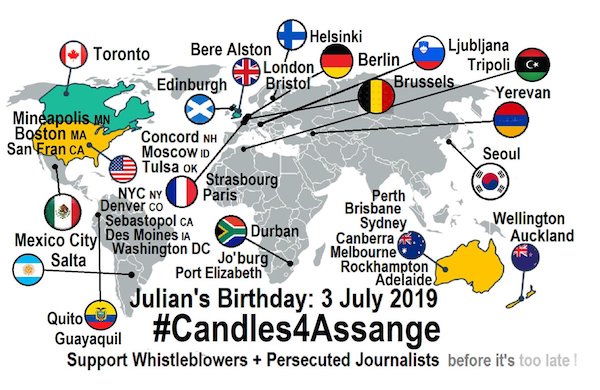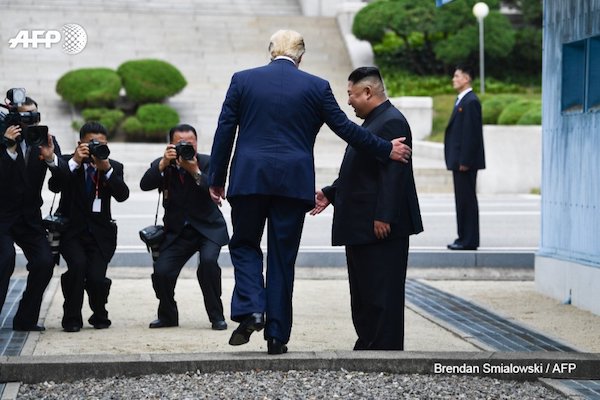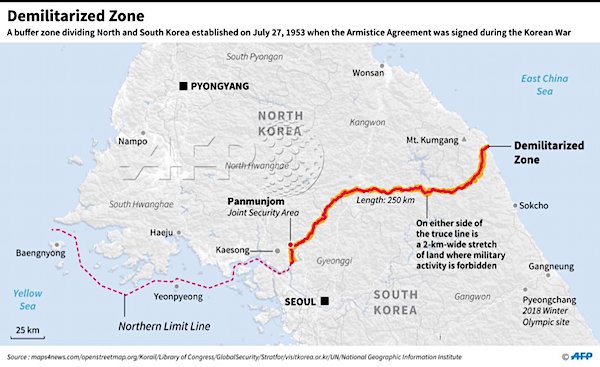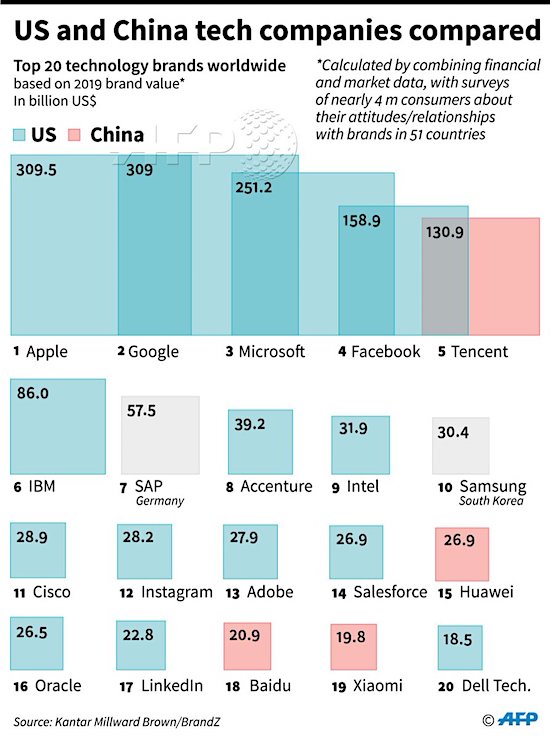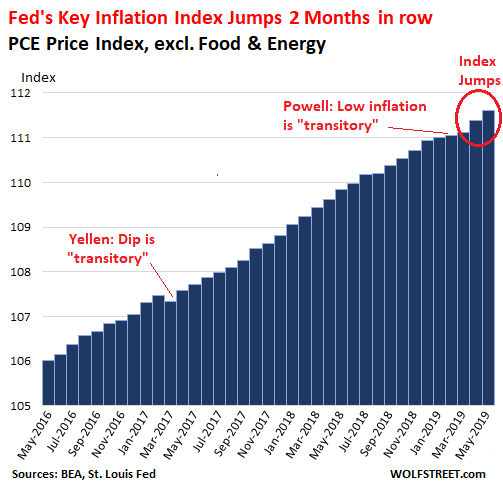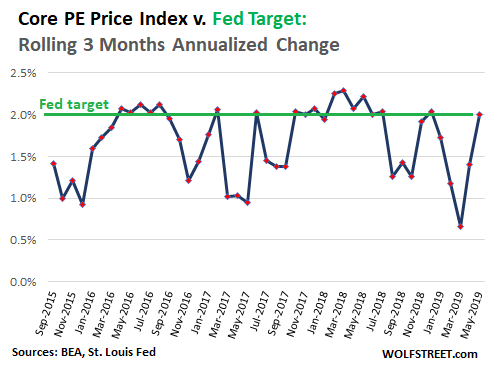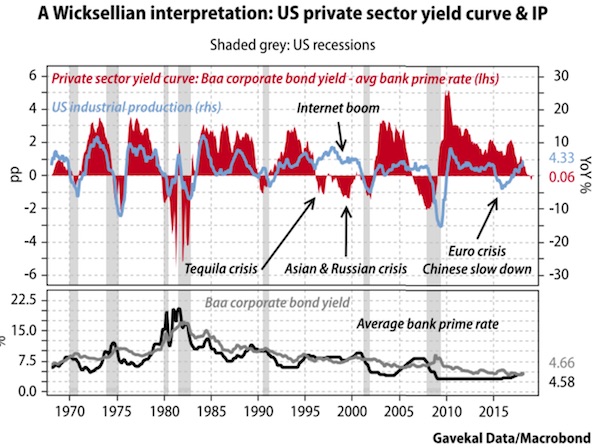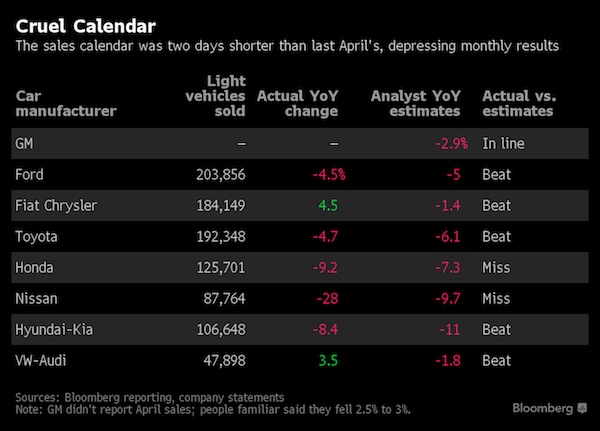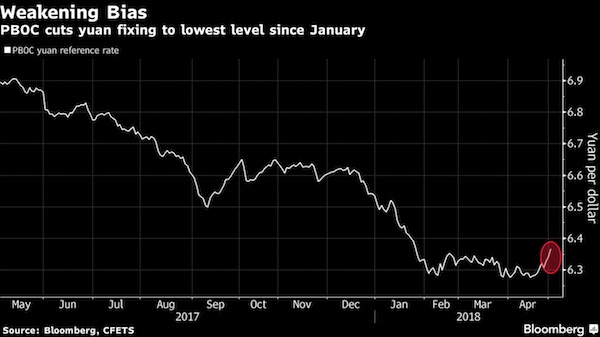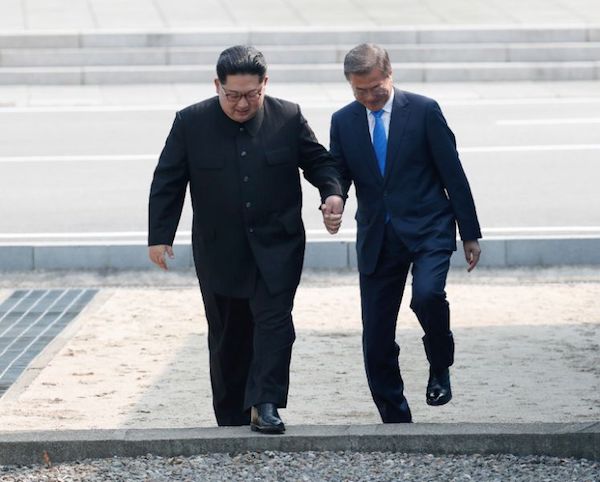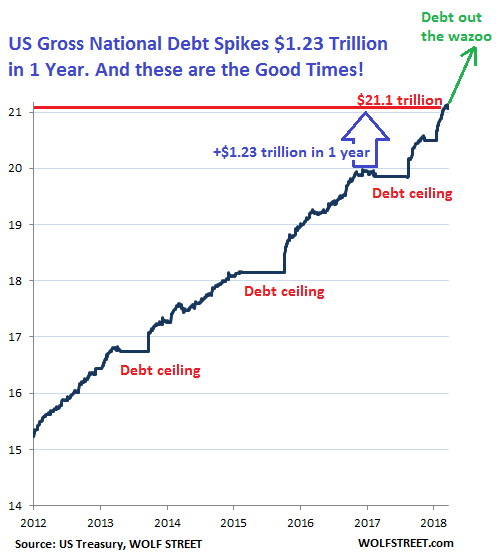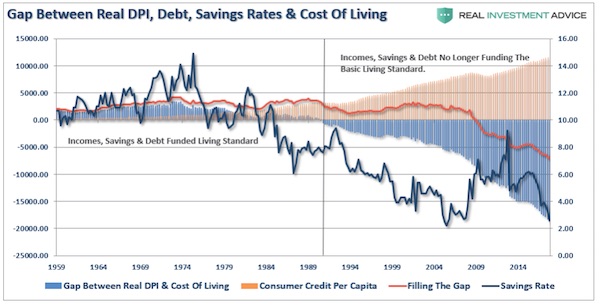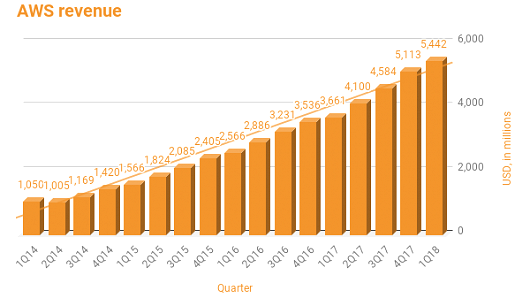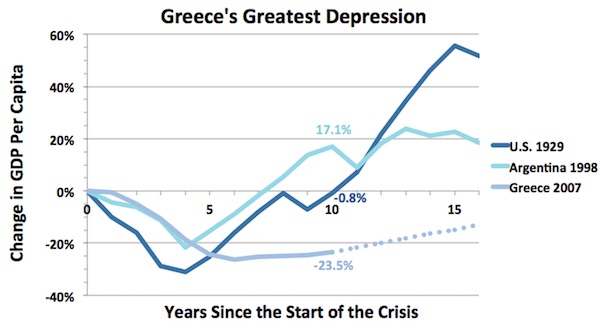
Giorgio de Chirico The Archaeologists 1927

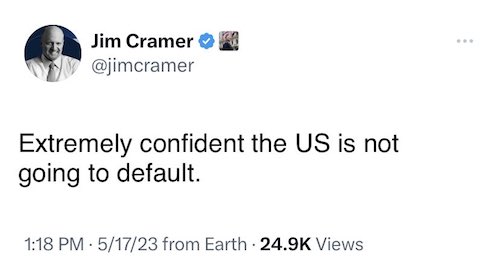

Fitton
Hillary did it. pic.twitter.com/JnjsathuTm
— Tom Fitton (@TomFitton) May 17, 2023



Gaetz
Matt Gaetz: 'The FBI Has Now Become a Disinformation and Election Interference Enterprise'
"The FBI and the Department of Justice were weaponized, and Trump was specifically targeted… It was an operation from beginning to end to fuse political opposition research from the DNC… pic.twitter.com/MLUPAM1dsu
— KanekoaTheGreat (@KanekoaTheGreat) May 17, 2023



Patriots
https://twitter.com/i/status/1658919182661042176



American lieutenant colonel broke Zelensky’s dream: Forget about returning the territories, you are incapable. Ukrainian forces are unable to dislodge Russian troops from their positions, despite the bold statements of Ukrainian President Volodymyr Zelenskiy, US Army Lt. Col. Daniel Davis said.
Answering the question of whether it is possible to realize Zelensky’s dream of returning to Kyiv the territories liberated by Russia, Davis replied that there is not even a theoretical possibility for that. “Simply, there is no fundamental basis to create such a large combat power and to dislodge an enemy as entrenched and equipped as Russia is now. It is a completely unrealistic combat goal,” Davis said in an interview with the YouTube channel “Judging Freedom”.


“Mueller’s probe existed in material fact to hide the Obama weaponization to target Donald Trump. Durham knew this; that’s why he never touched it.”
• Durham Found Zero Merit to Trump Russia Claims (CTH)
People ask why I find it difficult to write about the Durham report empirically confirming everything we previously outlined in the past five years. Here’s my answer. Eventually, after the shock & awe of the Durham confirmations wear off, I am hopeful that people will stand back and realize the bigger question that covers all of the Trump-Russia collusion conspiracy nonsense. This was a United States government operation to conduct full-throated surveillance on a U.S. presidential candidate, and then remove that candidate from the office of the presidency after his victory in the 2016 election. With John Durham outlining in granular details how the FBI, DOJ and larger intelligence apparatus acted politically to weaponize government on behalf of an allied presidential candidate in Hillary Clinton, a bigger question remains.
There never was any merit to the Trump-Russia nonsense, so what exactly were Robert Mueller and Andrew Weissmann doing for two years? Using the silo defense as a method of obfuscation, John Durham noted in his report [page #2] as below, never delved into that obvious question. Durham specifically, and with great intent, says he did not look at what Mueller and Weissmann were doing; even though, Durham destroyed any predication that might have given merit to the intention of their special counsel existence. Durham writes a 316-page report, meticulously detailing the false construct of the Trump-Russia narrative. Yet for some reason, the Mueller/Weissmann investigation, an entire special counsel investigation that was predicated and justified by that false Trump-Russia narrative, never found the same evidence?
Durham never looked at it. Why? Because he knew Robert Mueller and Andrew Weissmann were installed to cover up the original fabrications by the CIA, FBI, DOJ and U.S. intelligence apparatus. Mueller’s probe existed in material fact to hide the Obama weaponization to target Donald Trump. Durham knew this; that’s why he never touched it. Stop pretending. Once you stop pretending, you realize just how rotten this system is. John Durham intentionally and with specific foresight, did not want to reveal the criminal conduct of the Mueller/Weissmann special counsel. He knew exactly what they were doing; his investigation paralleled what their investigation would have done if Mueller was not established to hide the originating schemes.
Everything Durham found, Mueller could have easily found, and stated, and ended the nonsense. This reality, and Durham’s intentional decision to avoid confronting the Mueller fraud, is why no one should defend any part of what John Durham was doing, nor the report he delivers in conclusion. Durham is just as dirty as Robert Mueller and Andrew Weissmann. If he wasn’t, he would have outlined the purpose of Mueller and left them naked to the consequences. But that’s not what a good little silo maintainer does. Instead, John Durham simply acts as if Robert Mueller and Andrew Weissmann didn’t exist to try and destroy President Trump. Durham ignores the cleanup operation entirely.
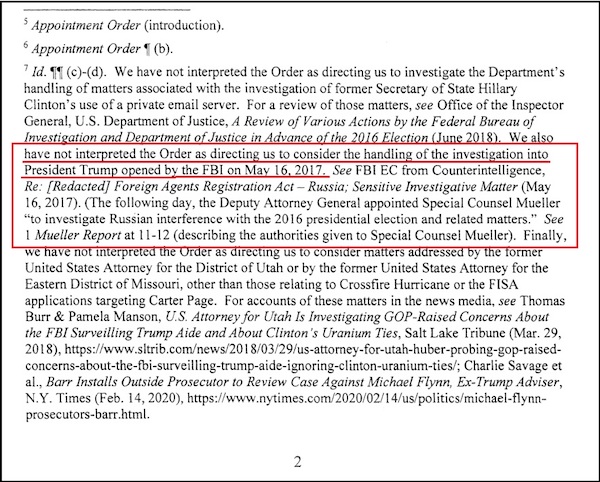

“In the end, it is not a crime to be unethical or incompetent, so no charges will be filed as a result of the report.”
• Durham Report Condemns FBI’s Russia Probe (Turley)
According to Durham, Comey — who later wrote and sold a book on “ethical leadership” — led the FBI to use “raw, unanalyzed, and uncorroborated intelligence” to effectively tie up a duly elected president for three years. Durham reports that FBI personnel admitted they disregarded standards for surveillance despite “acknowledging — both then and in hindsight — that they did not genuinely believe there was probable cause to believe that the target was knowingly [working for a foreign power].” In the end, it is not a crime to be unethical or incompetent, so no charges will be filed as a result of the report. Durham clearly hopes that the belated transparency provided by his report will produce greater future accountability. That may be the only naive aspect of his findings.
Of course, the FBI promptly issued a statement that it has — once more — reformed itself in light of its failures. But who really believes this is unlikely to occur again? Indeed, the same pattern and figures reemerged in 2020, when another false narrative was created to dismiss the Hunter Biden laptop scandal. Some of the officials involved in the false Russia collusion conspiracy were signatories on the letter by 51 former intelligence officials claiming that the laptop story was likely “Russian disinformation.” And the media again pushed that version before the 2020 election — only to admit, two years later, that the laptop was authentic all along. Conspicuously missing in the aftermath of Durham’s report is the one thing that would establish a clear commitment to reform: an apology. Clinton, Comey, members of Congress and others could apologize to the American people — and, yes, even to Trump.
That, of course, will never happen. Attorney General Merrick Garland, in releasing a report that concluded this investigation never should have occurred, made no statement whatsoever. Thus, Durham was left throwing haymakers in an empty political boxing ring — and those who perpetrated this scandal on the nation are left to carry on making money on books, speeches, TV commentary and lectures about political or electoral ethics. The media, meanwhile, is offering little more than a shoulder-shrug and more spin. So, in the relative silence of media coverage following the report’s release, Durham can contemplate an ultimate Zen-like question: If a 305-page report proves a concerted political hoax but no one is there to read it, does it make a difference?
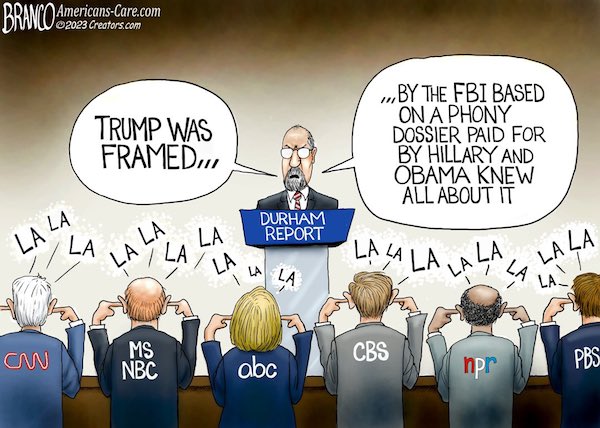

“Over an 11-year period, Hunter’s firm paid over $25k for Joe’s second iPhone (1-302-377-xxxx), which circumvented White House security protocols, along with ‘most lines’ on a ‘Wells Fargo credit line’ that Joe utilized. These phone, banking, and other financial records must be subpoenaed.”
• Oversight Panel Has Subpoenaed Joe Biden Phone Records (BB)
The House Oversight Committee has subpoenaed phone records of a phone belonging to President Joe Biden that Hunter Biden’s business paid for, according to Peter Schweizer, Government Accountability Institute president in an interview on Tuesday. Schweizer said in an interview with 77 WABC’s Cats & Cosby that it was discovered on Hunter Biden’s laptop that he was paying a phone bill for his father from 2009 to 2017, which encompassed the time Biden was vice president. “We obtained that phone number and we’ve shared it with individuals and the Oversight Committee in Congress is going to subpoena those phone records. And what’s important here is that’s not a government phone, this is not Joe Biden’s private phone that he’s paying for himself. It’s actually [Hunter] Biden’s business that paid for it,” Schweizer said.
“I think it’s going to yield a lot of interesting information as to who Joe Biden was talking to on this phone that was being paid for by his son,” said Schweizer, who is a senior contributor to Breitbart News and best-selling author of multiple books on corruption by political elites. Schweizer called the reported removal of the investigative team at the IRS looking into Hunter Biden’s alleged tax evasion “very troubling.” The removal came in alleged retaliation to a whistleblower who had contacted Congress about a possible cover-up going on at the IRS on the case. “It’s very troubling — the pattern that we’re seeing here,” Schweizer said, adding:
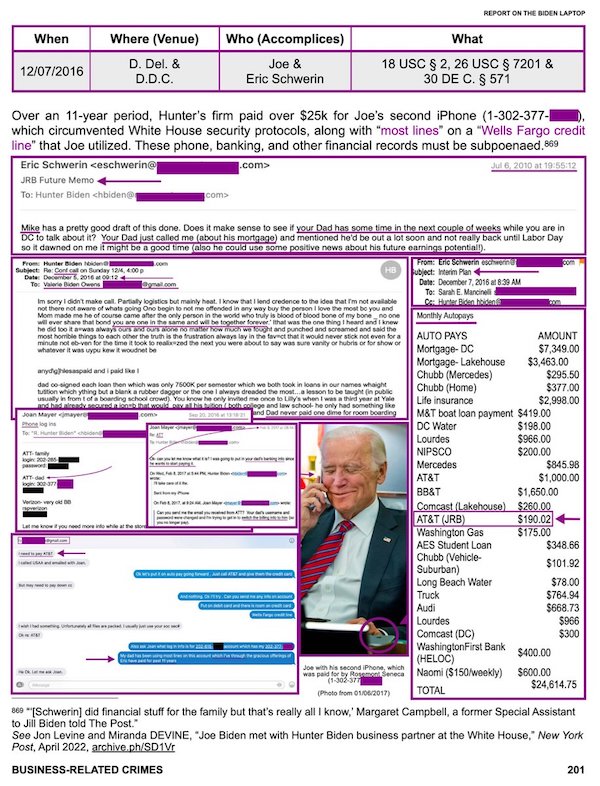
“You have these whistleblower complaints filed by people in the IRS that were looking at Hunter Biden’s failure to pay taxes. They issued whistleblower complaint to Congress — the report is that those individuals had been removed from the case, which is contrary to the Whistleblower Law — you’re not allowed to remove somebody from their position just because they filed a whistleblower complaint.” Schweizer said the removal of the investigative team is potentially illegal. He explained: “What happened in 2018 was the IRS looked into the fact that Hunter Biden had taken in all this foreign income, we exposed it in Secret Empires in 2018. That sort of launched the grand jury and you had this IRS investigation. And they basically concluded that Hunter Biden had taken in millions of dollars from foreign sources, had not paid taxes on it.
You have this friend, this lawyer in Los Angeles that paid two million to the IRS to pay some of the back taxes, but the IRS was looking into charges of tax evasion. They went to congressional committees and complained that they believe there had been political interference from DOJ. I haven’t seen the details, but this was the claim. And now lo and behold, the IRS says we’re going to remove the team from investigating Hunter Biden, who had been on it now for what, five years, and we’re going to start apparently gonna have to start the whole thing over, so what does that mean to the investigation? What does that mean? I think it’s massive, but first of all…I think it’s illegal by the whistleblower statute. You cannot remove somebody from their position, simply because they made a whistleblower complaint.”

“Having thus alerted readers that the new candidate with the familiar name is basically a head case, the Post and Times can now put that name back on the blacklist..”
• The Real Robert F. Kennedy Jr. (Scully)
While Republican affairs can certainly get rough and unseemly at times, it’s usually the Democratic Party we can turn to for lessons in cold, unsentimental power politics. Consider, for instance, the reception accorded by the party establishment and like-minded reporters to an unexpected entrant into the 2024 presidential race, Robert F. Kennedy Jr., a man who rates, one might have supposed, the respect due a worthy contender and honest dissenter. After declaring his candidacy last month, RFK Jr. immediately showed at 14 percent in polls. Mild alarm followed, among supporters of President Biden, when two weeks later the next round of polling gave Kennedy an average of 20 percent. You could tell this was a bit of a shock because, almost instantly, the Washington Post dismissed it as nothing, in a hurried item headlined “Robert F. Kennedy Jr.’s Threat to Biden Is Inflated. Here’s Why.”
As surely as any Kennedy could once expect to be fawned over by Post reporters, this Kennedy — especially if he starts drawing crowds and votes — is never to be spared condescension and rebuke. The “why,” in case you haven’t heard, is that RFK Jr. has in recent years been airing “controversial,” “dangerous” views, and this makes him, says the Post, a “fringe figure” you needn’t take seriously. Among his many provocations: Kennedy claims that pandemic lockdowns were calamitous for working people and for children; that citizens should choose for themselves whether to receive vaccines; that corporate influences on government are pervasive and corrupting; and that censorship contrived by the state is intolerable. Worse even than these outrages, during the pandemic this man called into question the conduct and veracity of Anthony Fauci. And this offense — challenging Doctor Fauci! — is still regarded as the most shameful assault on science since the persecution of Galileo.
It doesn’t matter that, point for point, RFK Jr. makes a strong case and most everyone knows it. His problem is, the prohibition on saying such things has not been lifted. A well-established, scientifically tested, and empirically proven phenomenon known as liberal groupthink has set in, preempting even the most obvious conclusions. So, even if Kennedy’s presidential bid is off to an impressive start, in the Post’s analysis he is still relegated to the same category as “fringe figure Lyndon LaRouche,” who — trivia time for Post readers — “in 1996 managed to pull double digits in some primary states.”
The New York Times, in its version of the LaRouche treatment, likewise left the impression of a candidate’s announcement speech strangely and single-mindedly focused on “shaking Americans’ faith in science,” no matter that the candidate himself had said nothing at all along those lines, and no matter that in all of his scientific arguments he cites scientific methods and scientific evidence. Here again the day’s news was predetermined: casting the accomplished son and namesake of Senator Robert F. Kennedy as just another sorry entry in “a history of fringe presidential aspirants from both parties who run to bring attention to a cause, or to themselves.” Having thus alerted readers that the new candidate with the familiar name is basically a head case, the Post and Times can now put that name back on the blacklist, denying Kennedy coverage unless he troubles them further by rising in polls or by making crazy demands for primary debates.

“Hungary is a big player in this and so are Poland and Germany, and they are working to get Zelensky to come around..”
• Neighbor Countries Ready To Pay Zelensky To Stop Conflict – Seymour Hersh (RT)
Poland is leading a group of European nations that are secretly urging Vladimir Zelensky to find a way to settle the conflict with Russia, veteran journalist Seymour Hersh has reported, citing a “knowledgeable” American official. According to US intelligence, other EU countries that want to see an end to the fighting include Hungary, Germany, the Czech Republic, Lithuania, Latvia and Estonia, Hersh wrote in an article published on his Substack page on Wednesday. “Hungary is a big player in this and so are Poland and Germany, and they are working to get Zelensky to come around,” the unnamed official claimed. Those countries have made it clear that “Zelensky can keep what he’s got if he works up a peace deal even if he’s got to be paid off, if it’s the only way to get a deal.” By “keep what he’s got,” the source was referring to the Ukrainian president’s villa in Italy and interests in an offshore bank, Hersh clarified.
However, Zelensky has so far rejected the proposal, while other major European players – France and the UK – “are too beholden” to the Biden administration, which is continuing to back the Ukrainian leader, the official said. One of the main reasons why Poland and the others want the conflict to end is because the burden of accommodating Ukrainian refugees has become too much for them, the Pulitzer Prize-winning journalist wrote. The problem for those countries “is how to get the US to stop supporting Zelensky,” Hersh’s source suggested. He claimed that US intelligence is well aware that “Ukraine is running out of money and… that the next four or months are critical. And Eastern Europeans are talking about a deal.” However, he added that “it’s not clear to the intelligence community what the president and his foreign policy aides in the White House know of the reality.”
The US is “still training Ukrainians how to fly our F-16s that will be shot down by Russia as soon as they get into the war zone. The mainstream press is dedicated to Biden and the war, and Biden is still talking about the Great Satan in Moscow while the Russian economy is doing great,” the official explained. Russia has repeatedly stated that it’s ready to resolve the conflict at the negotiating table. However, it did not receive any proposals from Ukraine and its Western backers that it could consider reasonable. Zelensky has been promoting his ten-point peace plan, which calls for Russian forces to withdraw to borders claimed by Ukraine, to pay reparations, and to submit to war-crime tribunals. Moscow has rejected the plan as “unacceptable,” saying it ignores the reality on the ground and is actually a sign of Kiev’s unwillingness to solve the crisis through diplomatic means.

Problem is, they want the DMZ and still become a NATO member. Russia will not let that happen.
• Ukrainian Spymaster Wants 100-km Demilitarized Zone With Russia (TASS)
Top Ukrainian intelligence official Kirill Budanov has proposed creating a 100-km-long demilitarized zone between Ukraine and Russia. “The question of ending the war [involves] the creation of a demilitarized zone; this is our goal,” the head of the Ukrainian Defense Ministry’s Main Intelligence Directorate told the Ukrainian Islandia (Iceland) TV channel. When further elaborating on the practical aspects of creating such a zone, Budanov said that, “this would be a zone that could not be attacked by the usual means.” “In my view, this would absolutely be the right distance,” the top intelligence official pointed out. The Russian government had earlier repeatedly voiced its readiness to negotiate with Ukraine to reach a settlement of the conflict.
At the same time, however, Russian Foreign Ministry Spokeswoman Maria Zakharova pointed out that the main obstacle standing in the way of such talks was the prohibition on conducting negotiations with Russian President Vladimir Putin, which was legally enshrined by Ukrainian President Vladimir Zelensky’s decree of September 30, 2022, “as well as the initiatives of the Ukrainian head of state, which indicate official Kiev’s complete detachment from modern realities,” including the demand to withdraw Russian troops from the new regions of the country. On February 9, Russian Foreign Minister Sergey Lavrov said that Moscow did not see any desire on the part of the Ukrainian side to start a serious conversation on a peaceful settlement.

“Today, thousands of rural boys and girls, farmers, are fighting and dying in the war. They have lost everything. The processes of free land sale and purchase are increasingly liberalised and advertised. This really threatens the rights of Ukrainians to their land, for which they give their lives.”
• Sowing Seeds of Plunder: A Lose-Lose Situation in Ukraine (OffG)
It’s a lose-lose situation for Ukrainians. While they are dying, financial institutions are insidiously supporting the consolidation of farmland by oligarchs and Western financial interests. So says Frédéric Mousseau, Policy Director of the Oakland Institute, an independent think tank. Depending on which sources to believe, between 100,000 and 300,000 Ukrainian soldiers (possibly more) have died during the conflict with Russia. That figure, of course, does not include civilian casualties. But it is not the purpose of this article to explore these issues. Much has already been written on this elsewhere. But billions of dollars’ worth of military hardware has been sent to Ukraine by the NATO countries and hundreds of thousands of young Ukrainians have died. They died in the belief that they were protecting their nation – their land. A land that is among the most fertile in the world.
Professor Olena Borodina of the National Academy of Sciences of Ukraine says: “Today, thousands of rural boys and girls, farmers, are fighting and dying in the war. They have lost everything. The processes of free land sale and purchase are increasingly liberalised and advertised. This really threatens the rights of Ukrainians to their land, for which they give their lives.” Borodina is quoted in the February 2023 report by the Oakland Institute War and Theft: The Takeover of Ukraine’s Agricultural Land, which reveals how oligarchs and financial interests are expanding control over Ukraine’s agricultural land with help and financing from Western financial institutions. Aid provided to Ukraine in recent years has been tied to a drastic structural adjustment programme requiring the creation of a land market through a law that leads to greater concentration of land in the hands of powerful interests.
The programme also includes austerity measures, cuts in social safety nets and the privatisation of key sectors of the economy. Frédéric Mousseau, co-author of the report, says: “Despite being at the centre of news cycle and international policy, little attention has gone to the core of the conflict — who controls the agricultural land in the country known as the breadbasket of Europe. [The] Answer to this question is paramount to understanding the major stakes in the war.” The report shows the total amount of land controlled by oligarchs, corrupt individuals and large agribusinesses is over nine million hectares — exceeding 28% of Ukraine’s arable land (the rest is used by over eight million Ukrainian farmers).
The largest landholders are a mix of Ukrainian oligarchs and foreign interests — mostly European and North American as well as the sovereign fund of Saudi Arabia. A number of large US pension funds, foundations and university endowments are also invested in Ukrainian land through NCH Capital – a US-based private equity fund, which is the fifth largest landholder in the country. President Zelenskyy put the land reform into law in 2020 against the will of the vast majority of the population who feared it would exacerbate corruption and reinforce control by powerful interests in the agricultural sector.

Last time?!
• Russia Confirms Grain Deal Extension By Two Months – Zakharova (TASS)
Moscow confirms that the grain deal has been extended for two more months, providing an opportunity to help ensure global food security, Russian Foreign Ministry Spokeswoman Maria Zakharova said on Wednesday. Turkish President Tayyip Erdogan said earlier that the grain deal had been extended for another 60 days. “We confirm the Turkish president’s announcement of a two-month extension of the Black Sea initiative, which is an opportunity to help ensure global food security not in words but in deeds, to help first and foremost the countries that need it most,” she said, adding that “imbalances” in the grain deal’s execution should be “corrected as soon as possible.” Zakharova went on to say that Moscow’s primary views of the deal have not changed.
Agreements on the export of food and fertilizers from Ukraine to the international market were concluded on July 22, 2022, for 120 days and extended in November for the same period. One of the agreements regulates the order of grain supplies from the Kiev-controlled ports of Odessa, Chernomorsk and Yuzhny. Moreover, a memorandum was inked by Russia and the UN on lifting export restrictions for Russian agricultural products and fertilizers to global markets. Moscow notes that the second part of the agreement is not being implemented. On March 18, 2023, Russia announced that the deal was extended for 60 days, warning that this would be enough time to assess the efficacy of the memorandum signed with the UN.
The Russian side has repeatedly stressed that the future decision on extension of the deal depends on implementation of the Russian part of the agreement, adding that the lack of progress on that issue threatens the future of the initiative. Representatives of Russia, Turkey, Ukraine and the UN discussed the issues of extension of the grain deal and the implementation of the Russian part of the agreement on supplies of grain and fertilizers on May 10-11 in Istanbul. The agenda also contained the issues of secure functioning of the grain corridor. Russia was represented by Deputy Foreign Minister Sergey Vershinin. No particular decisions on extension of the deal or consideration of Moscow’s requirements were announced following the negotiations.

Lavrov: The Minsk agreements were the last attempt at diplomacy
• We will no longer rely on the West as a partner that has at least some capacity for an agreement, said Russian Foreign Minister Sergey Lavrov in an interview with “Tsargrad” television, saying that Moscow will instead turn its attention to the rest of the world that wants to continue cooperation with her.
• According to his words, “there is no real diplomacy anymore” in the West. As he pointed out, it was last “seen” in 2014 and 2015, when the Minsk agreements were signed, but even then it was not real diplomacy, but, as he assessed, “diplomacy of lies”.
• The diplomacy of Western colleagues is reflected in bribing, threatening and forcing other countries to follow their policies, but all this indicates that the West is actually “not sure of the correctness” of its agenda, because if they are right, why should they threaten and use with harsh tactics, concluded Lavrov.
• NATO’s ‘Reckless’ Expansion To Undermine Security Dialogue – Lavrov (TASS)
Reckless NATO expansion and the bloc’s absorption of neutral countries will undermine any prospect for dialogue on European security, Russian Foreign Minister Sergey Lavrov said at a news conference following Moscow talks with his Belarusian counterpart Sergey Aleinik on Wednesday. “NATO’s reckless expansion eastwards, northwards or to other geographical areas undermines the very prospects to continue normal communication on European security,” Lavrov said, adding that “unfortunately, we are witnessing this process amid NATO’s absorption of almost all neutral nations.” “That’s sad,” he added. According to Russia’s top diplomat, the number of countries in Europe who advocate military or political neutrality is getting thinner, now that Finland has joined the alliance.
Sweden “seems to be on course to become a NATO member, too, while Switzerland rejected its neutral status by its actions,” he said. “That [neutrality] was enshrined in the constitutions of respective countries, and they created a space for finding a balance of interests and compromise between European NATO members and, say, the Union State and the Collective Security Treaty Organization,” he lamented.= “When and if the West comes to its senses and realizes that it will not be able to reverse the historically unbiased process of a multipolar world order evolving, that will, of course, require a conversation that will not be limited to Europe only,” Lavrov maintained as he insisted that global security should be “honest and equal.”.

“..specifically raising the Ukrainian flag or displaying posters in support of Kiev..”
• China Notifies Embassies In Beijing Not To Display Ukraine Propaganda (TASS)
China reminds foreign missions and offices of international organizations based in the country of the need to comply with international diplomatic treaties, Chinese Foreign Ministry Spokesperson Wang Wenbin said on Wednesday. Commenting on billboards in support of Ukraine exhibited outside some foreign embassies in Beijing, the Chinese diplomat said, “China is calling on all embassies and representative offices of all international organizations to comply with the Vienna Convention on Diplomatic Relations and carry out activities in line with international agreements.”
Wang’s comment came in response to a question from a reporter who asked whether the Chinese authorities had earlier advised foreign embassies against using the exterior walls of their buildings to display politicized propaganda, specifically raising the Ukrainian flag or displaying posters in support of Kiev. Wang urged all foreign diplomatic missions and organizations in China to respect Chinese laws. Kyodo reported on Tuesday, citing multiple sources, that Chinese officials have requested foreign diplomatic missions and international organizations in Being not to use the outer walls of their buildings for displaying political propaganda. Some embassies have put up signboards in support of Ukraine, the Japanese news agency said.

“..the funds should be redirected to other regions, namely to the Balkans or North Africa…”
• Hungary Urges EU To Redirect Ukraine Aide (RT)
Budapest has blocked a new €500 million ($544 million) package of EU financial assistance to Kiev, urging Brussels to redirect its support elsewhere. The eighth tranche from the so-called European Peace Facility (EPF) – a €5.6 billion ($6.08 billion) off-budget fund used to finance and supply foreign militaries – was vetoed by Hungary on Monday. Budapest told Reuters that it wanted the EPF to keep its original global scope, instead of being used exclusively to finance Kiev amid its ongoing conflict with Moscow. “Hungary does not agree with the fact that the European Union, along with other existing tools, uses the EPF solely with regard to Ukraine, as this does not allow sufficient funds to be channeled to promote the EU’s interests in other areas,” a government spokesperson wrote in an email to the outlet, adding that the funds should be redirected to other regions, namely to the Balkans or North Africa.
“For the Hungarian government, it is crucial that these issues should be clarified, and that’s why it did not approve the disbursement of the next tranche from the EPF,” the spokesperson concluded. The EPF was originally established in 2021, with a proclaimed goal of boosting the EU’s ability to maintain peace and strengthen regional and international security. The fund is used to reimburse the bloc’s own members, who send arms and equipment overseas, as well as to directly finance foreign militaries.
However, prior to the beginning of the ongoing conflict between Moscow and Kiev in February 2022, the fund was rarely used. A total of less than $125 million was allocated to supply non-lethal military equipment to several nations, including Ukraine. After the hostilities began, however, the EU funneled some €3.6 billion ($3.9 billion) under the EPF scheme to Ukraine in military support. Budapest has found itself at odds with Brussels over the conflict, taking a neutral stance and refusing to supply Kiev with weaponry. Hungary has also prohibited weaponry shipments heading to Ukraine from going through its territory, as well as opposed the bloc’s anti-Russian sanctions.

“This is a clash between the luxury doom-mongering of an upper-middle class more concerned with its own self-importance than with the self-sufficiency of society..”
• The Working-Class Revolt Against Net Zero (Spiked)
Two kinds of road-blocking are taking place in Europe right now. In the first, the sons and daughters of privilege, people with names like Edred and Tilly, are holding up traffic to put pressure on governments to speed up Net Zero. If we don’t cut carbon emissions drastically, they say in their cut-glass tones, our poor planet will be consumed in a heat death of rotten mankind’s own making. In the second, working people – farmers, truckers, cab drivers – are clogging the streets to put pressure on governments to slow down Net Zero. Or better still, scrap it altogether. If we don’t cut out the Net Zero nonsense, say these people who make and deliver things for the Edreds and Tillys of the world, farms will close, jobs will be lost and economic precarity will intensify.
Whose side should you take? It’s a no-brainer. This is a clash between the luxury doom-mongering of an upper-middle class more concerned with its own self-importance than with the self-sufficiency of society, and the common sense of working people who understand that farming, food production, energy creation and transportation are essential to the survival of our species. Between an elite driven mad by visions of a climate-change apocalypse and ordinary people who still inhabit the reality-based world. Between Net Zero fanatics who want to wind back modernity and Net Zero sceptics who think modernity works pretty well, thank you. It’s the latter road-blockers – the people using their HGVs, tractors and taxis to send a stern message to our eco-elites – that we should be cheering. Their revolt against Net Zero represents a daring populist strike against the delusions and complacency of the 21st-century establishment.
Danish truckers are the latest workers to join the rebellion against green authoritarianism. Yesterday, they caused ‘road havoc’ in Denmark. They parked their huge hauliers side by side on key roads. Sections of the border with Germany were affected, as were the M11 and M16 around Copenhagen. Roads towards the ferry docks at Helsingor – ‘one of the most important ports in Denmark’ – were also briefly clogged by angry truckers. Their beef? The government’s plan to introduce a ‘truck tax’ in 2025. As part of its devotion to the cult of Net Zero, the Danish ruling class wants to slash carbon emissions by 70 per cent before 2030. And one way it intends to do that is by imposing a punitive mileage-based eco-tax on the drivers of diesel trucks, in the hope that the financial pressure will become so unbearable that they’ll switch to electric trucks instead.
The ingratitude is staggering. Truckers are the lifeblood of a modern society. They transport the fuel, food and other goods that are essential to everyday life. They drive alone, for hours, in all weathers, to keep society well stocked. And how do the elites in Copenhagen repay these people who, without fuss or fanfare, bring them everything they need? By slapping them with a new kind of sin tax – the sin in this case being to drive a vehicle that the eco-minded consider to be ‘dirty’ and ‘polluting’.

“..they created huge farms because that was the policy promoted by the government and also by the banks. They wanted the farms to scale up their businesses. And now, suddenly the policy is to make smaller farms. This is also the EU policy. ”
• Dutch Farmer ‘Families Are Crying At The Kitchen Table Every Day’ (RMX)
Currently, the Dutch government is looking to offer buyouts for 3,000 farms in the Netherlands, and if they do not accept, their land will be confiscated The government is offering them 120 percent of the value of their land. A) Do you think that’s a fair offer, and B) Do you think they’re going to fight it?
It’s not fair at all because they have smashed these farmers for years now, and the people are so desperate that many families are crying at the kitchen table every day, and even a couple of farmers committed suicide already. Really, it’s that bad. Our government and also the banks supported a plan to create bigger farms, so the farmers bought the land of their neighbors, and they created huge farms because that was the policy promoted by the government and also by the banks. They wanted the farms to scale up their businesses. And now, suddenly the policy is to make smaller farms. This is also the EU policy. Then, you add nitrogen regulations. These farmers now have these huge farms, which means big debts, huge debts, because they had to invest. And now, the government comes up with the idea that they have this nitrogen problem, and farms need to close or be reduced in size.
The banks turn around and say, then your business — because a farm is really a business — is only worth 50 percent compared to yesterday. So these people have huge debts. They are captured in a system that they never asked for. They followed the rules, and now they are pushed in a direction that is really desperate for them. They don’t know what to do. It’s so difficult. These farms have been running from generation to generation. So, there is a lot of history tied up in these farms, and if you are desperate and don’t know what to do anymore, and you’re facing uncertainty year after year, then the government turns around and says, “OK, we have a way out for you, we have money to give you.” I think a lot of farms will do that, which is a disaster because they are the second-largest producer of food in the world after the United States. The Netherlands is just a tiny country, but we are producing so much food for the rest of the world. That’s a problem because we now have 8 billion people.

“..while eight times the normal level of carbon dioxide is toxic, research suggests that mask-wearers (specifically those who wear masks for more than 5 minutes at a time) are breathing in 35 to 80 times normal levels..”
• The Harm Caused by Masks (Anderson)
Mask-wearers breathe in greater amounts of air that should have been expelled from their bodies and released out into the open. “[A] significant rise in carbon dioxide occurring while wearing a mask is scientifically proven in many studies,” write the German authors. “Fresh air has around 0.04% CO2,” they observe, while chronic exposure at CO2 levels of 0.3 percent is “toxic.” How much CO2 do mask-wearers breathe in? The authors write that “masks bear a possible chronic exposure to low level carbon dioxide of 1.41–3.2% CO2 of the inhaled air in reliable human experiments.” In other words, while eight times the normal level of carbon dioxide is toxic, research suggests that mask-wearers (specifically those who wear masks for more than 5 minutes at a time) are breathing in 35 to 80 times normal levels. The German study, a scoping review of existing research, aimed “to investigate the toxicological effects of face masks in terms of CO2 rebreathing on developing life, specifically for pregnant women, children, and adolescents.”
The latter two groups, of course, have been among those most frequently subjected to mask mandates in schools, despite Covid’s low levels of risk for them and the evidence that masks don’t work. What can breathing too much carbon dioxide do to you? The authors write that “at levels between 0.05% and 0.5% CO2,” one might experience an “increased heart rate, increased blood pressure and overall increased circulation with the symptoms of headache, fatigue, difficulty concentrating, dizziness, rhinitis, and dry cough.” Rates above 0.5 percent can lead to “reduced cognitive performance, impaired decision-making and reduced speed of cognitive solutions.” Beyond 1 percent, “the harmful effects include respiratory acidosis, metabolic stress, increased blood flow and decreased exercise tolerance.” Again, mask-wearers are likely breathing in CO2 levels between 1.4 percent and 3.2 percent—well above any of these thresholds. What’s more, “Testes metabolism and cell respiration have been shown to be inhibited increasingly by rising levels of CO2.”
So, high blood pressure, reduced thinking ability, respiratory problems, and reproductive concerns are among the many possible results of effectively poisoning oneself by breathing in too much carbon dioxide. The authors write that “it is clear that carbon dioxide rebreathing, especially when using N95 masks, is above the 0.8% CO2 limit set by the US Navy to reduce the risk of stillbirths and birth defects on submarines with female personnel who may be pregnant.” In other words, mandates have forced pregnant women to wear masks resulting in levels of CO2 inhalation that would be prohibited if they were serving on a Navy submarine.

The original Lancet article is from Sep. 2022. I don’t usually include “old” things; this is a news aggregator. But the “new” comment on the article warrants interest.
@A1an_M: “I thought of another, simpler way of demonstrating that this Lancet paper claiming the vaccines saved 19.8 million lives is complete and utter bollards, using empirical data. OurWorldInData helpfully tells us how many people had actually been vaccinated at the end of December 2021: 4.55 billion As per my earlier tweet, we know that at worst in early 2020, pre vaccines, the Infection Fatality Rate of SARS-COV-2 averaged 0.25% across the world (Ioannidis). https://medrxiv.org/content/10.1101/2020.05.13.20101253v3 (By December 2021 it was less than half of that but we’ll let that slide for now) So assuming the vaccinated population was typical of the population as a whole, we can say that only 0.25% of those 4.55 billion vaccinated people were at risk of death from COVID. 0.25% of 4.55 billion is 11.4 million people.
So it is impossible for the vaccines to have saved 19.8 million lives. Fallen at the very first hurdle, the Lancet paper has. How embarrassing. I could go on and talk about how, out of those 11.4 million vaccinated people who were at risk of death, based on the mortality seen in England and Wales in 2020, more than 60% were over 80 and more than 90% had more than one other comorbidity making the chances of the majority of them surviving for a year even in the absence of a vaccine rather slim… or that the vaccines don’t prevent infection, transmission, hospitalisation or death from COVID and therefore it’s quite possible they didn’t save a single life, never mind 11.4 million .. but at this stage the Lancet model is flat on the floor begging for mercy so I will stop here.”
• Global Impact Of The First Year Of Covid-19 Vaccination (Lancet)
The first COVID-19 vaccine outside a clinical trial setting was administered on Dec 8, 2020. To ensure global vaccine equity, vaccine targets were set by the COVID-19 Vaccines Global Access (COVAX) Facility and WHO. However, due to vaccine shortfalls, these targets were not achieved by the end of 2021. We aimed to quantify the global impact of the first year of COVID-19 vaccination programmes. A mathematical model of COVID-19 transmission and vaccination was separately fit to reported COVID-19 mortality and all-cause excess mortality in 185 countries and territories. The impact of COVID-19 vaccination programmes was determined by estimating the additional lives lost if no vaccines had been distributed. We also estimated the additional deaths that would have been averted had the vaccination coverage targets of 20% set by COVAX and 40% set by WHO been achieved by the end of 2021.
Based on official reported COVID-19 deaths, we estimated that vaccinations prevented 14·4 million (95% credible interval [Crl] 13·7–15·9) deaths from COVID-19 in 185 countries and territories between Dec 8, 2020, and Dec 8, 2021. This estimate rose to 19·8 million (95% Crl 19·1–20·4) deaths from COVID-19 averted when we used excess deaths as an estimate of the true extent of the pandemic, representing a global reduction of 63% in total deaths (19·8 million of 31·4 million) during the first year of COVID-19 vaccination. In COVAX Advance Market Commitment countries, we estimated that 41% of excess mortality (7·4 million [95% Crl 6·8–7·7] of 17·9 million deaths) was averted. In low-income countries, we estimated that an additional 45% (95% CrI 42–49) of deaths could have been averted had the 20% vaccination coverage target set by COVAX been met by each country, and that an additional 111% (105–118) of deaths could have been averted had the 40% target set by WHO been met by each country by the end of 2021.

“No currency has been on top more than 150 years. Nobody has always been on top, so it’s always happened.”
• Dollar Dominance ‘Coming To An End’ – Jim Rogers (RT)
The US dollar is starting to lose its leading position across the globe, as Washington has become the world’s largest debtor, famed investor Jim Rogers told Sputnik news agency on Wednesday. The co-founder of the Quantum Fund noted that more and more countries are growing hesitant about the greenback, as deep reliance on its use can lead to various problems. “Many friends of America are moving, trying to find something to compete with and ultimately replace the US dollar,” Rogers said in an interview with the Russian outlet. According to the investor, an international currency should have an absolutely neutral status, and the lack of neutrality demonstrated by the White House, along with growing concerns over US creditworthiness, have deprived the greenback of that quality.
“Many people are starting to say: wait a minute, I don’t know if we want to use that money, because it will have a problem someday,” he said. “But also, the world’s international currency is supposed to be completely neutral. Anybody can use it for anything you want. But now Washington is changing the rules. And if they get angry at you, they cut you off.” Rogers explained that a growing number of countries are now seeking an alternative to the greenback, adding that the Chinese yuan could replace the US currency as the most common means for conducting international settlements.
Russia has been boosting economic ties with China over the past few years, adopting the yuan in international trade. In early April, the Chinese currency replaced the dollar as the most-traded foreign currency in Russia. Moreover, the yuan continues to penetrate a number of other markets around the world. “It will happen. It has always happened. And America’s time is coming to an end. The American dollar this time is coming to an end,” Rogers concluded. “No currency has been on top more than 150 years. Nobody has always been on top, so it’s always happened.”

“Without the FBI at our disposal, we may have to turn to traditional partners such as the mafia to fight our political enemies..”
• FBI Adds Itself To FBI Watch List (BBee)
In an unprecedented move to protect the safety and security of millions of Americans, the FBI has added itself to the FBI watchlist. “When we reflected on the vast number of pedophiles, insurrectionists, frauds, and killers in our organization, we thought: ‘Holy cow! Someone needs to keep an eye on these weirdos!'” said FBI Director Christopher Wray to reporters. “That’s why today we have decided to place the FBI on the FBI watchlist so the FBI can keep a close eye on the FBI before the FBI does something terrible.” Congress is demanding oversight of the FBI’s monitoring of the FBI, as the FBI has been known in the past to let the FBI get away with horrific crimes.
The FBI in turn is monitoring the Congressional oversight committee in charge of overseeing the FBI’s oversight of the FBI. “Americans shouldn’t worry, we have this all under control,” said Wray. Critics of the move expressed concern this may hamper the FBI’s ability to organize governor kidnapping schemes, insurrections, and mass shootings. “Without the FBI at our disposal, we may have to turn to traditional partners such as the mafia to fight our political enemies,” said one anonymous Washington bureaucrat. “What’s the world coming to?” At publishing time, the FBI announced they now have the FBI in custody. Unfortunately, they released the FBI from custody a few minutes later.




Soros
Since George Soros is in the news again…
Here's a deleted 60 Minutes interview of him where he admits to assisting in rounding up of Jews and confiscation of Jewish property. Then referring to it as a "happy-making experience".
One of the most EVIL men alive today. pic.twitter.com/4WFSmmxuBE
— Bigfoot (@Bigfoot_USA) May 17, 2023
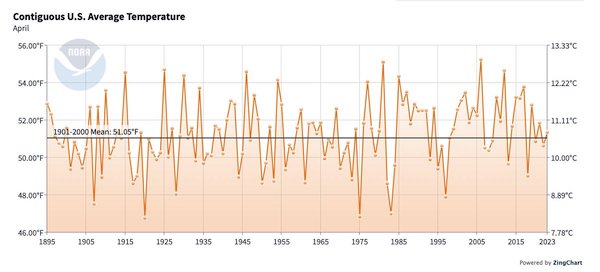
Just in from NOAA: April 2023 cooler in the US than April 1895, despite a 1000% increase in industrial era atmospheric CO2.

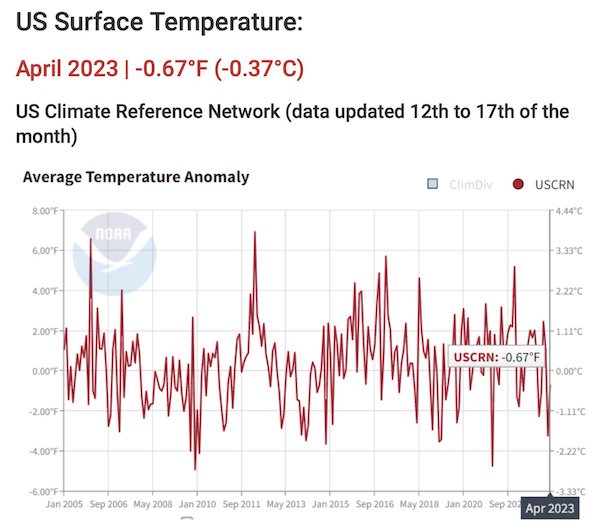
Just in from NOAA: No warming in the US since January 2005, despite 44% more atmospheric CO2.

Oyster swims
How an oyster swims… pic.twitter.com/n5fOTOT0OG
— The Best (@Figensport) May 15, 2023

Jellyfish
This jellyfish, apparently the size of a human (about 1.5 meters long), was spotted off the coast of southwest England in July 2019, and a stunning video shows the marine creature swimming by divers
[read more: https://t.co/IZ9rpsRsFF]pic.twitter.com/Iik2N196Ay
— Massimo (@Rainmaker1973) May 17, 2023

NASA
The genius of NASA pic.twitter.com/PLhOoXdccf
— The Best (@Figensport) May 17, 2023


Support the Automatic Earth in virustime with Paypal, Bitcoin and Patreon.





